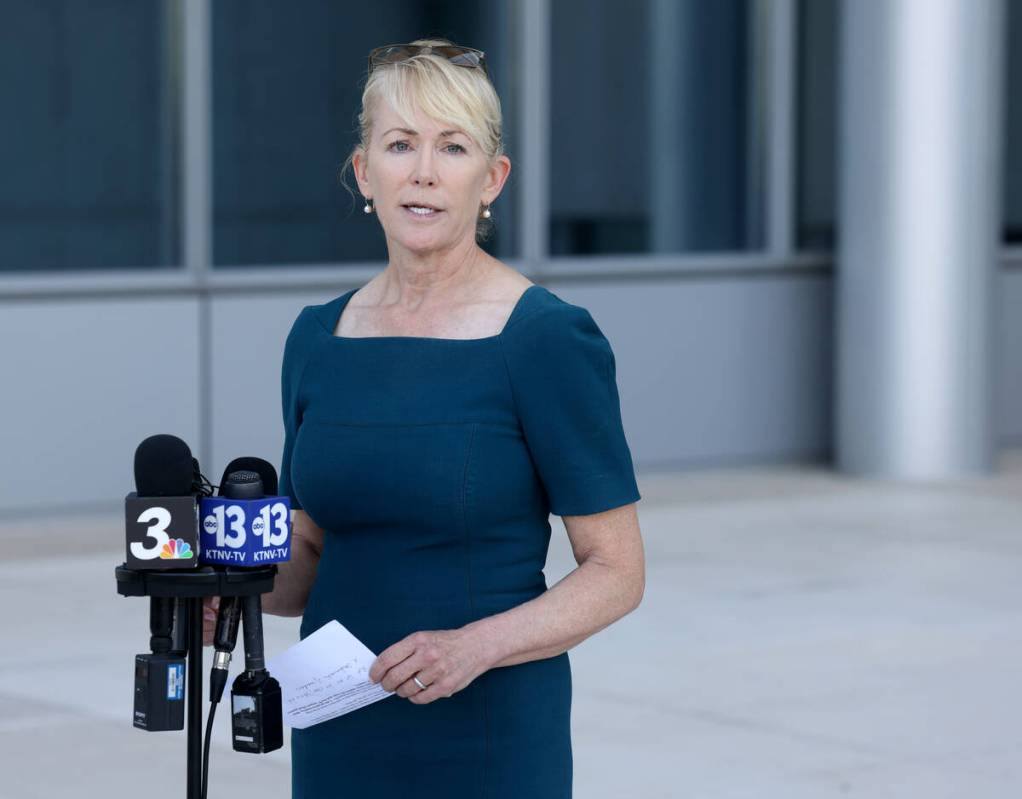‘A righteous case’: Lawyers, families push CCSD to act quickly on special education lawsuit

Lawyers and plaintiffs in a class action lawsuit accusing the Clark County School District of failing to provide proper education for students with disabilities urged school officials not to drag out the case.
“This is a righteous case, this is an incredibly strong case, and what we really hope is that the district and the state will recognize that right away, not try to drag it out, not try to postpone things over and over and over again,” attorney Gregory Little, one of the lawyers from across the country who are representing the plaintiffs, said at a news conference Monday.
In the 58-page complaint filed last week, lawyers allege that the district has failed to comply with the federal Individuals with Disabilities Education Act, creating an “unprecedented crisis” for students with disabilities. The suit was filed on behalf of 12 children from nine families.
School officials have declined to comment on the litigation.
The lawsuit alleges that the district has failed to properly identify students with learning disabilities and is maintaining policies that “systemically deny students” a free and appropriate education. The case is seeking a court order from a judge that would compel the school district to follow federal law, with oversight requirements.
Lori Rogich, another attorney involved in the case, had previously sued the school district over the education of her daughter, who has dyslexia. That lawsuit took about 10 years to resolve, and did not result in systemic changes the parties expected to see, attorneys have said.
It’s unclear how long court proceedings could last in the class action lawsuit.
“If we go to trial, I feel very strongly that at the end of the day, they will regret not having sat down and trying to get it resolved early,” Little said about the school district.
Families at the news conference also expressed their frustration with their children’s education.
Melissa Rose, a mother of an 11th grader with disabilities including autism, Tourette syndrome and Usher syndrome, which causes deafness and visual impairment, has previously talked about her son’s difficulties communicating with people. In an interview earlier this month, Rose said that at one point, her son was handcuffed because of his behavior, which she said was the result of him being unable to communicate.
“I go to work every day with the fear that my son may be hurt again by school policemen because someone did not understand him,” Rose told reporters on Monday.
Anna Marie Binder, another plaintiff in the lawsuit, said it feels like her eldest son slipped through the cracks, and was not properly identified. She said a lack of resources should not be an excuse to not provide students with a proper education.
“We want to help them provide the atmosphere where the children can come into our community schools and get the support that they need, from the professionals that should be there to provide that support,” Binder said.
Contact Katelyn Newberg at knewberg@reviewjournal.com or 702-383-0240.